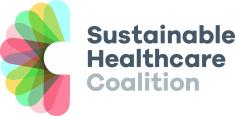Green Maternity Challenge 2024

Join us in the Green Maternity Challenge to champion sustainability and drive positive change in maternity care.
Why we need a Green Maternity Challenge
Maternity services are one of the NHS’s high-volume services, with over 673,000 births in the UK in 2022. Each of these will have been preceded by approximately 30 weeks of regular antenatal care and followed up with postnatal care.
The NHS is responsible for 4% of the UKs carbon footprint - equivalent to the entire emissions of Croatia. NHS services and resource use is therefore contributing to the environmental and ecological crisis. Pregnant women and infants are some of the most vulnerable to the effects of climate change, such as extreme heat, air pollution, and natural disasters, which can exacerbate health issues, leading to complications such as preterm birth, low birth weight, and respiratory problems.
Significant inequalities persist in maternal services across the UK, disproportionately affecting women and birthing people from ethnic minorities and socio-economically disadvantaged backgrounds. Black women are four times more likely to die in pregnancy or childbirth compared to white women, and Asian women face twice the risk. Additionally, women from the most deprived areas are more likely to experience stillbirth compared to those from the least deprived areas.
Climate change and healthcare inequalities are inextricably linked. Disadvantaged communities are often more exposed to environmental hazards, are less able to recover from these hazards, and often have reduced access to high-quality healthcare. This compounding effect exacerbates health disparities.
Addressing inequalities and environmental harm from healthcare services not only improves health outcomes and experiences of care, but contributes to a more just and sustainable healthcare system.

What is the Green Maternity Challenge
The Centre for Sustainable Healthcare (CSH) has partnered with The Royal College of Obstetricians and Gynaecologists (RCOG), The Royal College of Midwives (RCM) and The Sustainable Healthcare Coalition (SHC) in an SBRI funded project "Taking collective action to deliver low carbon, equitable maternity care".
In the Green Maternity Challenge, six clinical teams in the UK will be selected to receive training and mentoring from CSH to develop, plan, run, and measure the impact of a sustainable quality improvement (SusQI) project. Projects will focus on identified target areas for reducing environmental harm and health inequalities (see below for target areas).
Key Dates and Activities:
- Application period: Applications have now closed. Successful teams have been selected and informed.
- Workshops & start of project period: 14th-18th October
- Teams will participate in a 90-minute virtual workshop on sustainable healthcare, SusQI methodology, and project development.
- Project Phase: 14th October - 31st January (16 weeks)
- Project work: Over 12 weeks, teams will set aims, plan and implement changes, collect data, and calculate the impact of their changes. The CSH environmental analyst team will assist in carbon footprinting the environmental outcomes of the project.
- Reporting: Complete a SusQI Project report, reviewed and supported by the CSH team.
- Showcase Event: Wednesday 5th March 2025, date/time TBC
- Teams will present their projects to a judging panel and audience at an online event.
- The judging panel will include
- Dr Ranee Thakar, President of RCOG
- Fiona Gibb, Director, Professional Midwifery, RCM
- Emma Crookes, Lived Experience Representative
- Dr Frances Mortimer, Medical Director, CSH
- This event is open to all - those working in maternity care services and members of the public with lived experience or an interest in sustainability within maternity care
If you have questions about the Challenge, please contact Rachel McLean, SusQI Programme Lead for specialty challenges, rachel.mclean@sustainablehealthcare.org.uk
Please consider joining our Women's Health Network - an online community of healthcare professionals committed to tackling the environmental impact of women's health by sharing knowledge, ideas and examples of good practice.
'Now is your time to point the way to a brighter future. It will be your ideas, collaborative working and innovative mindsets that will lay the path for all delivering maternity care to follow. Do not hold back, come together and submit your ideas and we will support you every step of the way to demonstrate how these ideas can achieve the change that is so evidently required.’
Dr Ranee Thakar
President of the Royal College of Obstetricians and Gynaecologists (RCOG)
12th July 2024 - Announcing the Carbon and Equity target areas that could transform care and launching the Green Maternity Challenge
Watch the recording to learn more about the carbon and equity target areas and the Green Maternity Challenge.
Target Areas
We believe that by focusing Quality Improvement and service re-design projects around these target areas, maternity care can become more equitable and sustainable. These target areas overlap and many projects will tackle several at the same time.For all improvement work the outcome and experience of the people using the services is key. These should be maintained or improved in particular for people who are underserved by the status quo.
- Valuing people’s time:
Streamlining services and systems to avoid waste
Examples: Tackling delayed discharge, efficient scheduling of appointments, decreasing travel to appointments
Example links to environmental impact: Appointments, hospital bed stays and travel all contribute to carbon emissions and environmental harm.
- Supporting informed choices:
Providing relevant information and support so that people can successfully access/implement the choices that are best for them and the planet
Examples: Linking into local voluntary provision, access to pain relief, better access to translation services, culturally relevant support, being explicit about sustainability choices e.g. bounty packs
Example links to environmental impact: Appropriate and personalised care can reduce inefficiency in systems and use of resources that are of low-value to women and birthing people - which can save carbon and waste.
- Listening to women:
Reducing waste and improving outcomes by involving people in their own care, co-designing services and utilising third sector support
Examples: More say for people in how and where they access care, processes that value the voices of women
Example links to environmental impact: Personalised care can be more efficient, reducing healthcare activity that is of low value to women and birthing people. Leveraging third sector support can reduce the need for hospital-based care by providing community-based solutions, which typically have a smaller environmental impact compared to traditional healthcare settings.
- Access and experience for people who experience worse maternity outcomes:
Focusing resource and/or re-designing systems to cater for those that the system has underserved before
Examples: Improvement of services for people living in deprived communities, black and asian women and young mothers and birthing people
Example links to environmental impact: Reducing health inequalities leads to better outcomes for wider populations which long term reduces healthcare activity and resource use which contribute to carbon emissions
- Complex pregnancies:
Improved systems for those with additional care needs or complications
Examples: hypertension pathway improvements, new ways of monitoring, reducing travel to appointments
Example links to environmental impact: Optimising health by reducing complications and streamlining care for complications reduces inefficiencies in healthcare activity and resource use (e.g. appointments, medicines and avoidable emergency care) which contribute to carbon emissions.
- Infant feeding:
Meeting the unmet need of those who want to breastfeed but lack appropriate support
Examples: improved systems for supporting women in their feeding choices including peer support and culturally relevant nutritional support
Example links to environmental impact: Streamlined support and improved feeding outcomes reduces need for additional appointments and resources which contribute to carbon emissions and waste.
- Pelvic health and continence:
Tackling the long-lasting effects of poor continence following childbirth
Examples: Promotion of ante-natal pelvic health guidance, access to specialist services, improvement to perineal tear care
Example links to environmental impact: Improving continence may prevent life-long need for continence products and associated care which contribute to carbon emissions and waste.
About the Green Maternity Challenge
The Green Maternity Challenge will be delivered by CSH in partnership with the Royal College of Obstetricians and Gynaecologists (RCOG), the Royal College of Midwives (RCM) and The Sustainable Healthcare Coalition (SHC) as part of SBRI funded project "Taking collective action to deliver low carbon, equitable maternity care". This work was commissioned and funded by SBRI healthcare is an Accelerated Access Collaborative (AAC) initiative, in partnership with the Health Innovation Network. The views expressed in the publication are those of the author(s) and not necessarily those of SBRI Healthcare or its stakeholders.
The Challenge is a national adaptation of the Centre for Sustainable healthcare’s Green Team Competition - an award-winning, tried & tested leadership and engagement programme to transform healthcare by cutting carbon, improving patient care and staff experience, and saving money. The Centre for Sustainable Healthcare have been successfully reducing environmental impact and building social value in healthcare through the competition for 9 years. You can view previous Green Team Competition case studies in the Resource Library.









